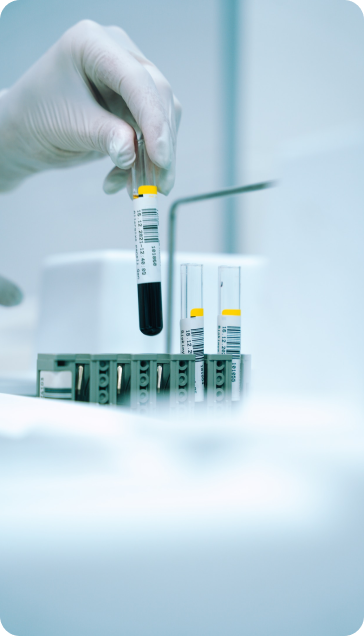
Al Borg Diagnostics
Male Infertility
What is male infertility?
Infertility is the inability of a sexually active, non-contracepting couple to achieve spontaneous pregnancy in one year. If the cause of the fertility problem is found in the man, this is male infertility. Male infertility is found in approximately half of all childless couples. The inability to conceive a child can be stressful and frustrating, but a number of treatments are available for male infertility.
What could be the symptoms / causes?
There may be no other obvious signs or symptoms.
In some cases, however, an underlying problem such as
- Hormonal problems;
1- Decrease testostrone ( Decrease sperm production)
2- Increase Prolaction abonormal brest growth (gynecomastia) - Genetic disorder or chromosome defects; Decreased facial or body hair
- Problems with sperm production like varicocele; pain, swelling in the testicle area
- Difficulties with erection or ejaculation or other problems in genital tract
- Infection of urogenital tract
- Other causes: Anabolic steroids taken to stimulate muscle strength, addictive drugs, alcohol, tobacco smoking, and obesity
How to diagnose?
Your doctor will take your medical history, examination and may request any of the following:
Scrotal ultrasound – Semen analysis, urine analysis or a urethral swab – Blood test for hormones – Both gonadotropins – follicle-stimulating hormone (FSH) – luteinizing hormone (LH) – Prolactin – Inhibin B
– Free and total testosterone – Thyroid hormones – Cholesterol levels – Blood glucose – Tests for renal function and liver disease – Testicular biopsy – Genetic testing
What to avoid?
Male infertility isn’t always preventable. However, you can try to avoid some known causes of male infertility.
For example:
- Avoid smoking, alcohol, illicit drugs,
- Maintain a healthy weight.
- Don’t get a vasectomy.
- Avoid things that lead to prolonged heat for the testicles.
- Reduce stress.
- Avoid exposure to pesticides, heavy metals and other toxins.
Check your Infertility state With Fertility Male Package




